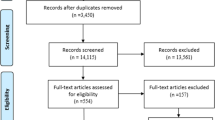Abstract
As death from cancer approaches, the associated symptoms become more important. Not only do these symptoms impair quality of life and guide palliative management of the patient, but some also appear to have prognostic value in determining clinical course and survival. A comprehensive prospective analysis of symptoms in 1,000 patients on initial referral to the Palliative Medicine Program of the Cleveland Clinic was conducted. Data were evaluated to determine any relationship between demographic characteristics, symptoms and subsequent survival. Shorter survival after referral to the Palliative Medicine Program was associated with male gender, poor performance status, dysphagia and early satiety. Dysphagia and early satiety were independently associated with reduced survival. There was a gender difference in survival favoring women. The effects of dysphagia, early satiety and gender were equal and nearly of similar magnitude to performance status. Symptom and gender analysis should be included in all cancer treatment and symptom control studies.
Similar content being viewed by others
Author information
Authors and Affiliations
Additional information
Electronic Publication
Rights and permissions
About this article
Cite this article
Walsh, D., Rybicki, L., Nelson, K.A. et al. Symptoms and prognosis in advanced cancer. Support Care Cancer 10, 385–388 (2002). https://doi.org/10.1007/s00520-001-0318-z
Published:
Issue Date:
DOI: https://doi.org/10.1007/s00520-001-0318-z




